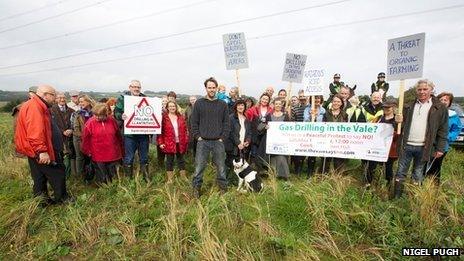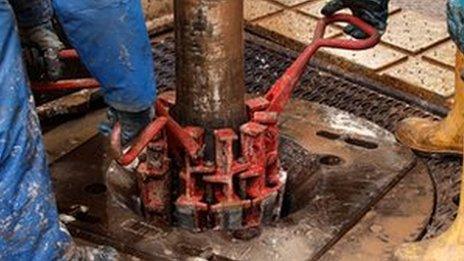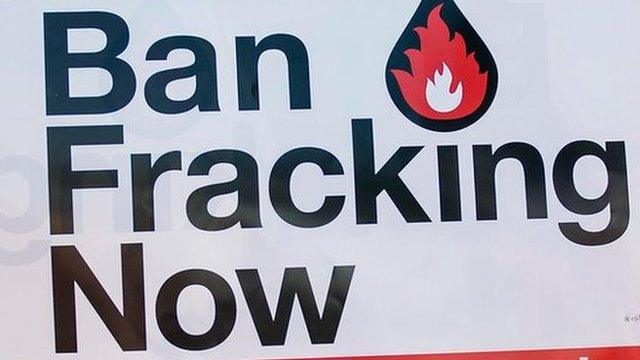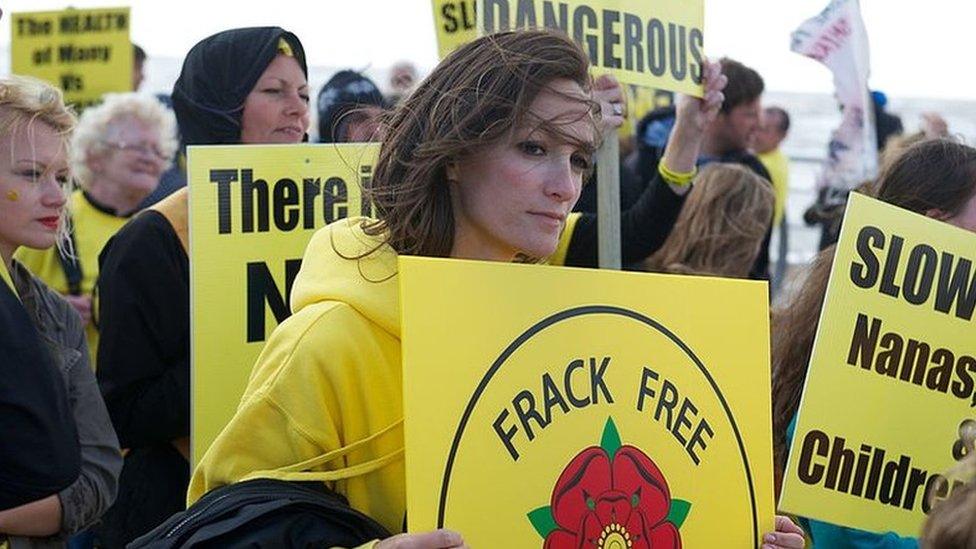Rhondda and Vale councils pass gas drilling tests
- Published
A firm in Cwmbran has come up with ideas which they say could make drilling for shale gas safer
Two south Wales councils have backed exploratory gas drilling bids, prompting opponents' fears of potential future extraction by fracking.
Vale of Glamorgan and Rhondda Cynon Taf councils had been asked to consider borehole drilling at four separate sites by Coastal Oil and Gas.
Three of the locations are in the Vale, while the fourth is at Llantrisant.
A Rhondda Cynon Taf (RCT) council report said future extraction requests would need separate approval.
Fracking, or hydraulic fracturing, involves injecting water and chemicals into shale rock at high pressure. The rocks shatter in the process, releasing trapped natural gas.
But the process has led to widespread protests in the UK, including in Wales - with demonstrators gathering outside the assembly in Cardiff last week.
The plans before RCT council were recommended for approval.
The report before the development control committee said: "This application is for exploration works only and does not entail any ground stimulation, more familiarly known as fracking, nor does it involve directional drilling.
"Any future proposals for extraction would require a further application for planning permission and the grant of planning permission for mineral exploration does not indicate a presumption in favour of future exploitation of any mineral resources found.
"Therefore, concerns about fracking, and the perceived consequences of it, are not material in the determination of this application."
Campaigners have raised concerns about the possible impact on the environment, including water contamination, and pollution.
Wayne Edy runs a commercial deer farm near one of the borehole sites being considered in the Vale of Glamorgan near Llantrithyd.
"The big concern is if it does go towards fracking eventually," he said.
"The UK is a lot smaller country than say the USA where fracking was founded and they pioneered there.
"They mustn't underestimate the negative effects that come with fracking."
New technology
The initial boreholes bids agreed on Thursday will be to explore the structure and geography of the sites, and whether they are suitable for shale gas extraction.
Coastal Oil and Gas say their approach is being backed with engineering support from a Welsh company, Cintec.
It has developed a technique using super-strong Kevlar material, commonly found in bullet-proof armour, to wrap around the drill bore pipes before being filled with concrete to form a barrier against pollution.
Cintec has also developed an inflatable water storage system, which would remove the need for water reservoirs to be built on potential fracking sites.
Deer park owners are concerned about the possible impact on their herd
Gerwyn Williams, director of Coastal Oil and Gas, insisted that the case for shale gas extraction was growing.
"Shale gas extraction offers us a secure and viable solution to boost our economy, create significant employment and lead the way towards energy self-sufficiency for the whole of the UK," he said.
"What is needed now is a better understanding of the industry and the process, in order to enable communities and the wider public to allay concerns and enjoy the process's many benefits.
"If we do not investigate alternative solutions, fuel supplies will run out."

Villagers at Llantrithyd in the Vale of Glamorgan are opposing the test drilling site bid
- Published2 October 2013
.jpg)
- Published10 April 2013

- Published30 August 2013

